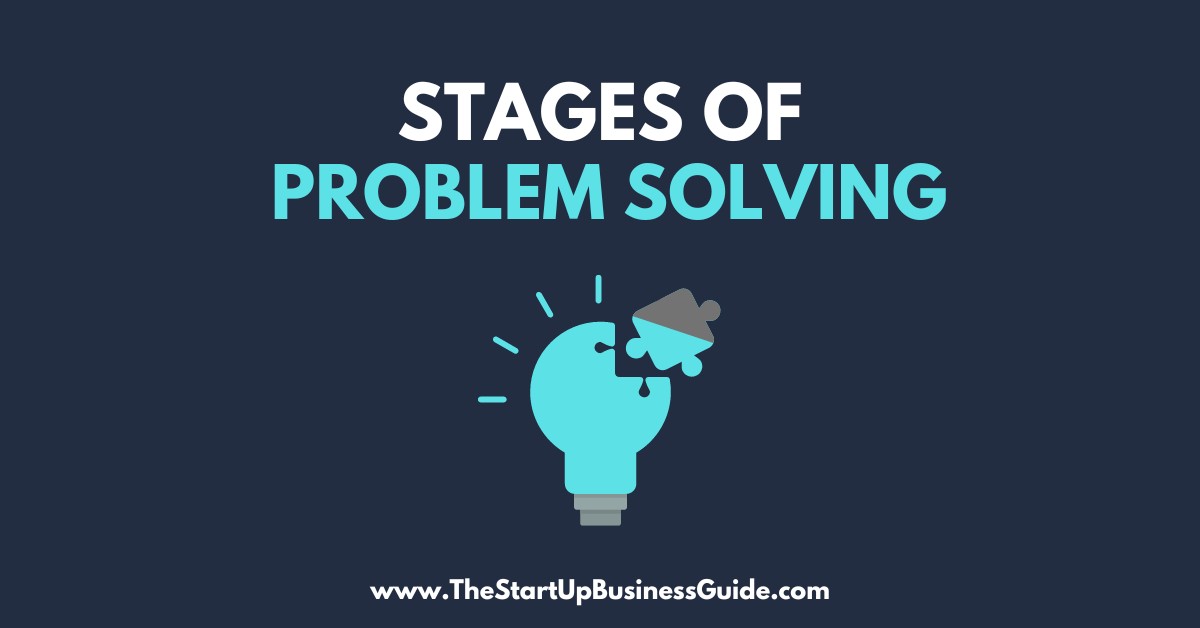What are the Various Stages of Problem Solving

Problem-solving skills are a must for every individual.
In this blog post, we will explore the various stages of problem solving, including understanding the problem, generating solutions, evaluating options, implementing a plan, and continually improving upon our process.
By the end of this post, you will have a deep understanding of the problem-solving process and the tools and strategies you need to tackle any problem that comes your way.
What are Problem Solving Skills
Problem solving skills are the ability to identify, analyze, and find solutions to problems.
These skills are important in both our personal and professional lives.
They help us navigate the complex and ever-changing landscape of our lives and careers with confidence and ease.
Understanding the Problem
The first step in the problem-solving process is understanding the problem.
Identifying the problem can be the most challenging part, because problems are often not clearly defined.
However, by taking the time to analyze the problem and break it down into smaller components, we can gain a better understanding of what we’re dealing with.
Generating Solutions
Once we understand the problem, it’s time to start generating solutions.
One effective strategy is brainstorming, which involves generating as many ideas as possible without judgment.
Researching and mind mapping can also be useful tools for generating solutions.
Further, using a template can be helpful in guiding our thought process and ensuring that we don’t overlook any important considerations.
Evaluating Solutions
Once we have a list of potential solutions, it’s time to evaluate them.
This means considering the pros and cons of each option, as well as their feasibility and potential impact.
It’s also important to assess the potential risks associated with each solution.
Implementing Solutions
Once we have selected the best solution, it’s time to implement our plan.
This involves creating an action plan, executing it, and monitoring and reviewing progress.
It’s important to stay flexible and be willing to make adjustments as necessary.
Continual Improvement
Finally, it’s important to continually improve upon our problem-solving process.
This means reflecting on our process and identifying areas for improvement, as well as incorporating feedback from others.
Frequently Asked Questions about Problem-Solving Skills
Let’s go through some FAQs:
Q: What are problem solving skills?
A: Problem solving skills are the ability to identify, analyze, and find solutions to problems.
They involve critical thinking skills, creativity, and the ability to implement a plan of action.
Q: Why are problem solving skills important?
A: Problem solving skills are important in both personal and professional settings.
They allow us to navigate complex and challenging situations with confidence and ease, and can lead to greater success in our personal and professional lives.
Q: How can I improve my problem solving skills?
A: Improving problem solving skills can be done through practice, reading widely, actively engaging with material, seeking the input and ideas of others, and continually reflecting on and improving one’s process.
Q: What is the first step in problem solving?
A: The first step in problem solving is identifying and understanding the problem.
This involves analyzing the problem and breaking it down into smaller components to gain a better understanding of what needs to be solved.
Q: How do I generate solutions?
A: To generate solutions, one can use techniques like brainstorming, researching, mind mapping, and using a template.
Q: How do I evaluate solutions?
A: To evaluate solutions, one can consider the pros and cons, feasibility and potential impact, and potential risks associated with each option.
Q: How do I implement a solution?
A: To implement a solution, one can create an action plan, execute it, and monitor and review progress.
Q: How do I continually improve my problem solving process?
A: Continual improvement of the problem-solving process can be done by reflecting on the process, identifying areas for improvement, and incorporating feedback from others.
Conclusion
In conclusion, problem solving skills are essential in both personal and professional life.
By understanding the problem, generating solutions, evaluating options, implementing a plan, and continually improving upon our process, we can tackle any problem that comes our way.
We hope this guide has provided you with the tools and strategies you need to become a problem-solving expert.
Remember to always stay curious, stay flexible, and stay committed to continuous improvement.






